Projects
-
Happy Bee Honey > Projects
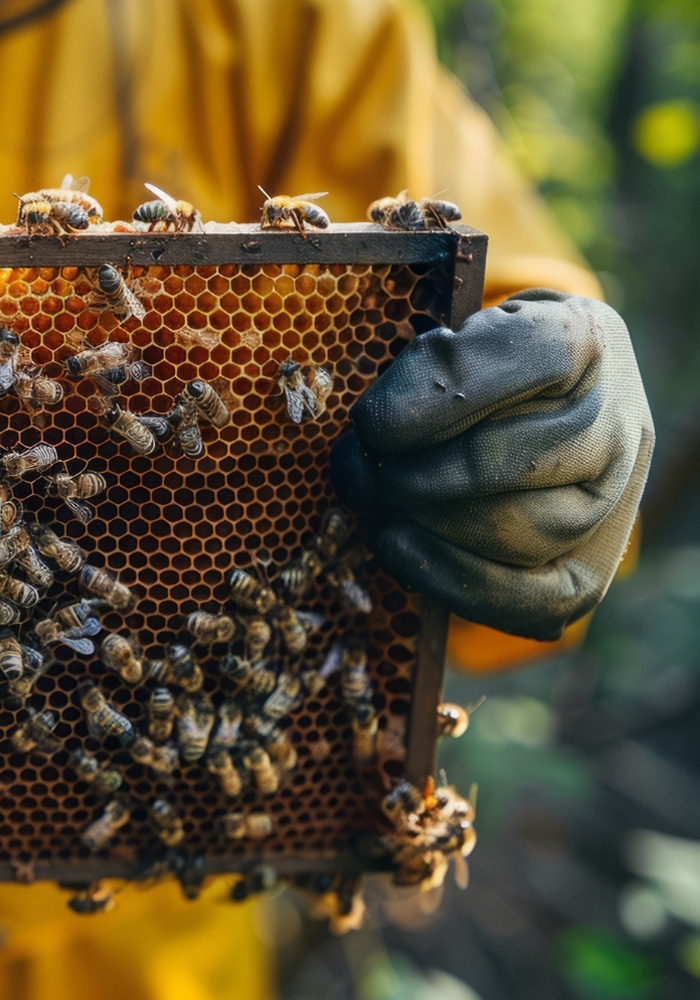
Bees4Women
Beekeeping in Uganda has traditionally been a predominantly male occupation, due to a mix of cultural and social factors, as well as practical constraints, that limit girls and women’s participation. Despite its potential for enhancing rural livelihoods, limited value addition is being realised in prevailing beekeeping practices.
Commercial opportunities for honey are growing in Uganda, but the poor, especially the young women, are not benefitting. Yet, beekeeping is a relatively low-cost, labour-free (according to one informant ‘The only animal that does not require feeding, attention and protection’) and the bees can forage on other people’s land, thus suited to resource-poor households. The barrier is getting started is with access to finance, stock of bees and know-how. Women beekeepers in Uganda face a number of challenges related to lack of access to credit, productivity, quality and low prices, while supply fails to meet demand and market speculation distorts farm-gate prices. Beekeepers lack the volumes and capacity to bargain for better prices, have inadequate technical knowledge, lack support services to develop beekeeping into a sustainable business, and have limited access to markets. We believe a strengthened honey value chain is the best and most sustainable way to address these issues and reduce poverty for women beekeepers in Uganda. We believe a strong value chain can be achieved if producers are able to work collectively and collaboratively through their participation in groups which are linked to private sector actors.
Happy Bee Honey has already introduced modern top-bar beehives that can be installed close to the households and are easily managed by women in 10 Districts of Uganda covering 1000 households. The company facilitates awareness raising on the importance of enhancing girls’ and women’s involvement in the sector and supports mobilization of women and girls beekeepers to form groups to facilitate access to credit as well as technical and management support.
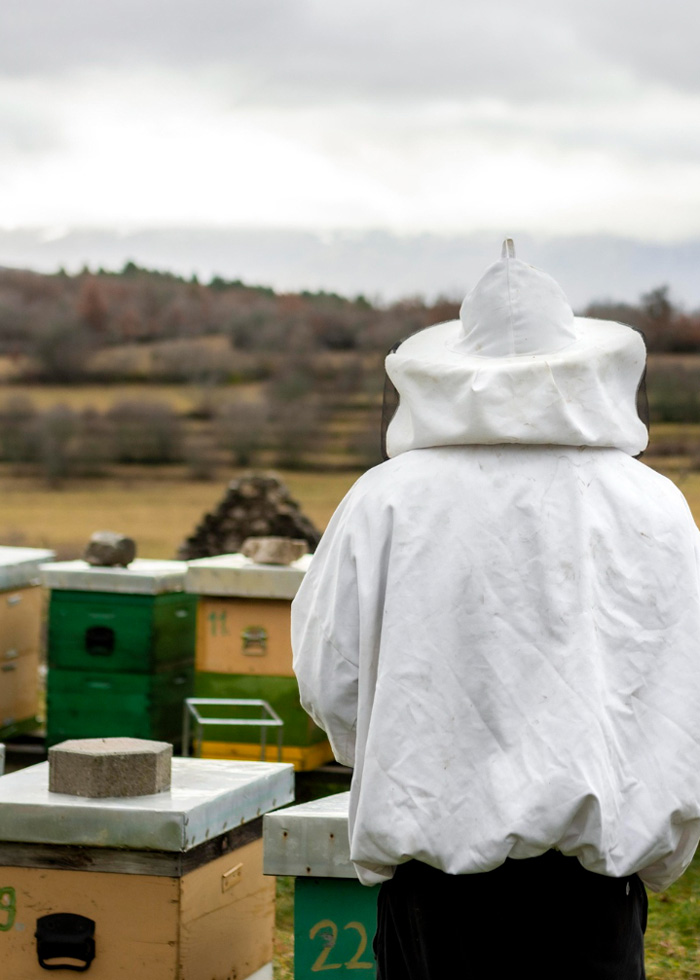
Bee Girls Enterprise
Bee Girls that aims to empower girls and young women to build and develop their own sustainable beekeeping enterprises in Uganda. We work with smallholder young women and girls beekeepers to boost honey production and expand market base by improving access to finance, key inputs and market. These young women in the selected communities lack decision-making power when they are financially dependent on their husbands and are categorised very poor. This could change if they start and/or expand beekeeping and increase their annual household cash incomes by 30 percent from honey and other bee products sales. The girls/young women groups are supported with startup tools/equipment, trainings and mentorship to pursue an efficient, profitable and sustainable bee farming as a business. We train trainers to deliver skills, provide access to credit for investment capital, build local capacity to support apiculture and enable young women and girls producers to access markets.
Happy Bee Honey is Bees4Women and BEE Girls model in over 10 districts of Uganda including Kiboga, Kyankwanzi, Mityana, Kamuli, Buikwe, Kyotera, Arua, Mubende, Buyende and Rakai. In the selected villages we have reached out to over 1000 women and girls where we have introduced modern top-bar beehives that can be installed close to the households and are easily managed by women and girls. Linked to this, the company has facilitated awareness raising on the importance of enhancing women’s involvement in the sector and supported mobilization of women beekeepers to form groups to facilitate access to credit as well as technical and management support. We have provided guaranteed market access for the honey produced by women small-holder farmers, which it collects at farm-gate while ensuring timely and efficient payments to farmers as well as bulking. We have supported value addition through improved processing facilities, related infrastructure, packaging/branding and facilitate market linkages for the sale of honey and bee products. The company has provided environmental management training for the women beekeepers groups and also promote the use and protection of local sub-species of bees to encourage beekeepers to conserve and protect their environment.
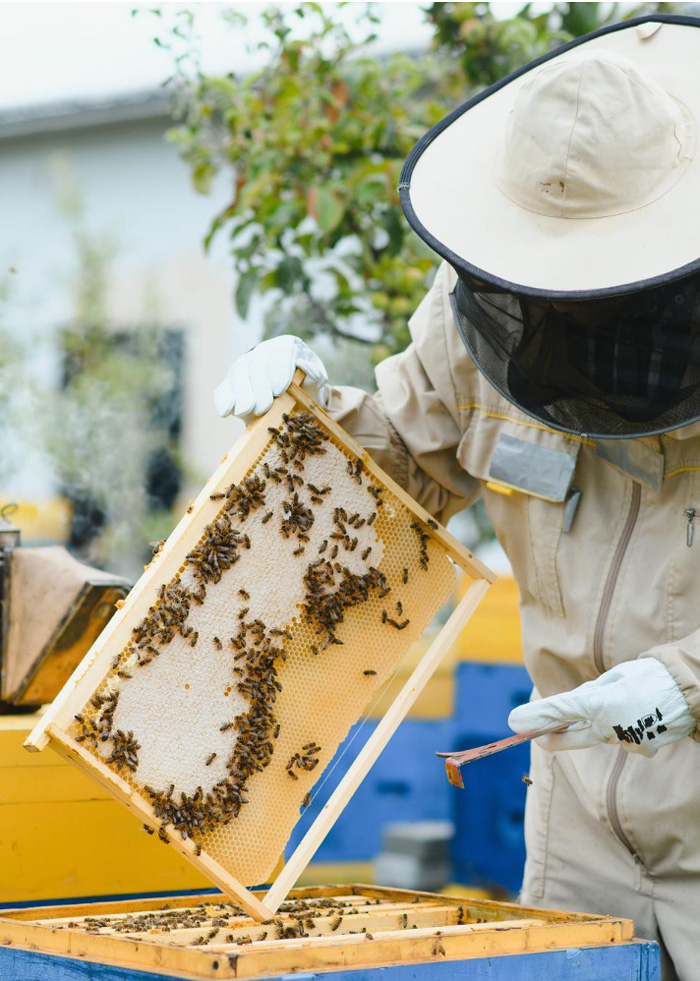
BeeCredit
Provide Loan support for Bee equipments and production kits to mobilized and organized women and girls bee keepers. The support comprises training of the groups in credit management and accounts, training of group leaders for conducting meeting, leadership etc and financing of the establishment costs of the groups (cash box, accounts ledgers, trunk for storage, etc.). All training sessions have a variety of information embedded information on environment, health including SRH, malaria and messages on the importance of education. Sometimes the Loan scheme is based on giving beehives and equipments and seeking re-payment in honey. The loan duration is 6-12months
Why Bees for sustainable business?
Beekeeping’s competitive advantage for on-farm integration is ascribed to the low start-up costs, low labour requirements, less land needed, user friendly technology, and dependency on traditional knowledge and skills. Additionally, it provides complementary services to other on-farm enterprises like crop pollination. Beekeeping is also an efficacious tool in rural development as bees are omnipresent, and the required equipment and tools namely: hives, smokers and protective clothing, are locally made. Due to all these factors plus its contribution to livelihood outcomes, especially the guaranteed year-round financial protection, beekeeping is considered a vital component of poverty eradication in rural areas. Beekeeping offers direct and indirect benefits to the rural people. Directly, beekeeping substantiates household income from hive product sales, provides food, safe medicines and raw materials for industries. These income benefits have been reported to have high impact among marginalized and small income earners such as women, girls, orphans and other vulnerable groups within the society. Indirectly, beekeeping contributes to water shed-management, forest conservation and crop pollination.

Our Environment, Food Security and Climate Change Benefits
Environment more trees equal more bees: Honey production is ideally suited to ensuring a positive environmental impact. Beekeeping generates an income without exerting pressure on land resources. Since the quality and quantity of honey production relies on availability of nectar from a range of flowering shrubs and trees (“more trees equal more bees”), it is in the interests of beekeepers to conserve and protect their environment. The project will provide environmental management training for the women beekeepers’ groups during the project. Learning from our previous honey projects has shown that as individuals‟ income from honey production increases, so, too, does their commitment to conserving their environment. After occasional beekeepers recognize the income earning potential of honey, they begin to take it more seriously as a business and, subsequently, pay attention to the management of natural resources. This results in improved livelihoods for beekeeping families and sustainable community land management that facilitates further income generation. This project will, therefore, have a positive impact and serve to protect the local environment in the long term
Food and nutrition security: Beekeeping can reduce the vulnerability of rural households, providing off-season income and creating employment opportunities in the input and service markets. The increased income enables rural women and girls to purchase more goods, including food, and pay for education and health services.
Regeneration and agriculture: Improved beekeeping practice demands more bee forage plantation and conservation of the environment and provides an alternative income to the sale of forest products. Pollination by the bees is an environmental benefit.
African Bee Coffee a product of Happy Bee Honey Limited
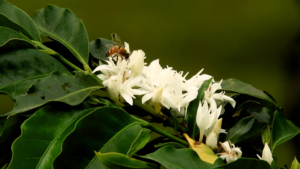 Happy Bee Honey Ltd is also a coffee exporter of Ugandan Coffee under brand name African Bee Coffee. We supply quality Arabica and Robusta coffee as nano-lots, microlots and up to full containers. African Bee Coffee is harvested from the highlands of north-west Uganda and Lake Victoria basin by our dedicated local farmers who protect bee habitats, preserve the environment while delivering the highest quality coffee on their farms.
Happy Bee Honey Ltd is also a coffee exporter of Ugandan Coffee under brand name African Bee Coffee. We supply quality Arabica and Robusta coffee as nano-lots, microlots and up to full containers. African Bee Coffee is harvested from the highlands of north-west Uganda and Lake Victoria basin by our dedicated local farmers who protect bee habitats, preserve the environment while delivering the highest quality coffee on their farms.
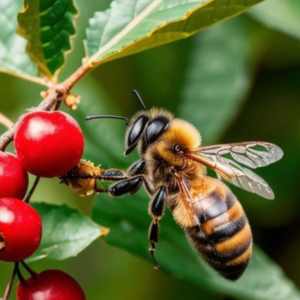
At Happy Bee Honey Ltd, we understand that Coffee is not just the result of human effort but also of an interconnected ecosystem and the collaboration between nature and humans. Among these natural allies, bees stand out as guardians of biodiversity and fundamental agents in the pollination of coffee plantations. Without them, the balance of the ecosystem and the quality of coffee would be at risk. That is why our African Bee Coffee pays tribute to bees and their role in producing exceptional coffee.
We also produce our own roasted coffee which is available at retail outlets in Kampala and around the country. Every bean for African Bee Coffee is handpicked, expertly roasted, and handcrafted and every cup is a step towards a brighter future for both people and planet.
Sustainable Sourcing
Arabica Green Coffee Beans: Grown in the Mt Elgon region of Eastern Uganda, our Arabica beans thrive at altitudes of 1500m to 2500m above sea level. Varieties such as Washed Bugisu AA, Washed Bugisu AB, and Drugar undergo a meticulous process of washing, pulping, and sun-drying before grading. These beans are sourced from smallholder women farmers.
Natural Robusta Green Beans: We carefully screen our Robusta green beans on screens 18, 15, and 12, ensuring quality. We also separate low grades like BHP 1199 and Black beans. These beans come from districts around the Lake Victoria Basin, Uganda, cultivated by smallholder agroecological women farmers.
Support sustainable coffee farming and help protect bee populations with every sip of African Bee Coffee. Choose eco-friendly, specialty-grade coffee that nurtures both your taste buds and the planet.
Protecting bees means protecting the future of coffee.
Our Linkages to Standard Development Goals (SDGs)
No Poverty
Creation of local livelihoods
Zero Hunger
Local production of honey, known as superfood, and additional livelihoods
Good health and well-being
Nutritional and medicinal hives’ products properties
Gender equalities
Focus on women’s training. Happy Bee Honey and Bee4Women initiative and the partners are renowned for their actions towards women.
Decent work and economic growth
Creation of local social enterprises
Sustainable communities
Beekeeping being one of the most sustainable livelihoods with only positive externalities
Responsible consumption and production
Zero waste from activity and sustainable honey production following organic practices
Climate actions
Forest conservation, pollination effects enhancing vegetation capturing greenhouse gas
Life on lands
Maintaining quality of environment and biodiversity
Partnerships for the Goals
Working with complementary organizations and institutions